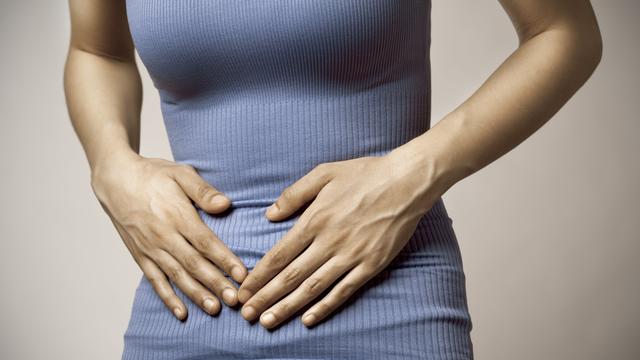كل ماتحتاج أن تعرفه عن أمراض الكولون والمستقيم – البواسير

يجيب عن هذه الأسئلة دكتور ماثيو تيثيرلي، استشاري جراحة القولون و المستقيم و جراحة المنظار في مستشفى برجيل، أبو ظبي، يجيب على الأسئلة الشائعة حول أمراض القولون والمستقيم.
بداية، ما هي البواسير؟
البواسير هي واحدة من أكثر أمراض القولون و المستقيم إنتشاراً. أكثر من نصف عدد السكان يصابوا بالبواسير في فترة ما في حياتهم عادةُ بعد سن الثلاثون. البواسير الخارجية تتكون من أوردة متمددة تحت الجلد عند فتحة الشرج، من الممكن أن يحدث بها تورم أو تسبب الم. أحياناً قد تصبح شديدة الألم إذا حدث بها تجلط (تخثر) للدم. البواسير الداخلية و التي تصيب القناة الشرجية تتصف بنزيف بدون الم و بروز عند حركة الأمعاء. عندما تسوء حالة البواسير من الممكن أن تبرز.
ما هي الأعراض و العلامات الشائعة للبواسير؟
من أكثر الأعراض شيوعاً هي نزيف بدون الم في المستقيم. قد يظهر هذا النزيف بكمية صغيرة على المناديل الورقية أو في المرحاض. يشتكي المرضى أيضاً من شعور بعدم إرتياح أو حكة في منطقة الشرج. أحياناً في حالة البواسير كبيرة الحجم يحدث تدلي من الشرج و تكون شديدة الألم. لكن وجود الم شديد عند التبرز يكون في العادة نتيجة لحالة أخرى تسمى الشرخ الشرجي.
متى يجب إستشارة جراح القولون و المستقيم؟
البواسير شائعة جداً و هناك العديد من خيارات العلاج الفعالة. معظم الناس بإمكانهم التعافي من الأعراض بالقيام بتغييرات في أسلوب الحياة و إستعمال أدوية بسيطة. لكن إذا لم تنتهي الأعراض في غضون أسبوعين يجب إستشارة جراح القولون و المستقيم. نزيف لونه أحمر ساطع أثناء و بعد حركة الأمعاء هو أكثر الأعراض شيوعاً للبواسير. للأسف أعراض مشابهة قد تحدث في أمراض أخرى مثل التهاب القولون و السرطان. لذلك إذا لم يتوقف النزيف بالعلاج البسيط في خلال أسبوعين من المهم زيارة جراح القولون و المستقيم.
ما هي أسباب البواسير؟
العوامل التي تساهم في حدوث البواسير و التي يجب الإتباه لها للوقاية هي إجهاد مفرط في حركة الأمعاء و الجلوس لفترات طويلة على المرحاض (للقراءة أو إستعمال الهاتف المحمول) و الإمساك أو الإسهال المزمن و الحمل و العوامل الوراثية.

كيف يتم تشخيص البواسير؟
أبسط طريقة لتشخيص هذه المشكلات هي القيام بفحص مع جراح القولون و المستقيم الذي يتعامل مع هذه الحالات. لتأكيد التشخيص يتم فحص رقمي (بالحاسوب) للمستقيم مع تنظير المستقيم و القولون السيني (منظار بسيط لفحص المستقيم). أحياناً ينصح بعمل تنظير شامل للقولون إذا كان هناك أعراض و علامات لمرض آخر بالقولون مثل تغير في حركة الأمعاء أو في حالة وجود عوامل خطر الإصابة بسرطان القولون.
كيف يمكن تجنب الإصابة بالبواسير؟
الوقاية خير من العلاج! أسهل طريقة للوقاية من البواسير هي بالحفاظ على البراز ليناً لكي يمر دون الحاجة لإجهاد. من المهم أيضاً عدم الجلوس لفترات طويلة على المرحاض و عدم الإجهاد أثناء حركة الأمعاء. من الناحية المثالية، إذهب لدورة المياه فقط عند وجود حاجة شديدة لفتح الأمعاء و لا تجلس أكثر من 3 إلى 4 دقائق مع تمرير براز له قوام معجون الأسنان.
ما هو علاج البواسير؟
يساعد في البداية تغيير النظام الغذائي و زيادة السوائل. الحفاظ على المنطقة جافة و نظيفة مهم أيضاً. قم بنقع المنطقة في مياه دافئة لمدة 10 إلى 15 دقيقة مرتان لثلاث يومياً خصوصاً بعد فتح الأمعاء. عند التجفيف إستعمل منشفة و قم بالتربيت بدلاً من المسح. إذا لم تقم هذه الإجرائات بتحسين الحالة قد تكون بحاجة إلى أدوية تكون عادةً مليناً أو مسهل لكي يلين البراز. إذا سببت البواسير الالم أو الحكة من الممكن لمخدر موضعي أو لكريم به ستيرويد أن يريح الأعراض و لكن يجب إستعمالهم لفترة قصيرة فقط. مع إستعمال هذه العلاجات من الممكن أن تزول أعراض البواسير في غضون أسبوع أو إثنان ، إذا لم تتحسن الحالة يجب إستشارة جراح القولون و المستقيم.

لدى جراح القولون و المستقيم العديد من الطرق للتعامل مع البواسير تشمل إجرائات تتم بالعيادة مثل ربط بالشريط المطاطي أو الحقن الذي يؤدي لإنكماش البواسير. هناك أيضاً عدد من العمليات الجراحية من الممكن إجرائها مثل ربط الأوردة أو الاستئصال المفتوح للباسور أو الإستئصال للباسور بالتدبيس. يحدد الجراح العلاج و الجراحة المناسبة طبقاً لنوعية البواسير التي يعاني منها المريض.






